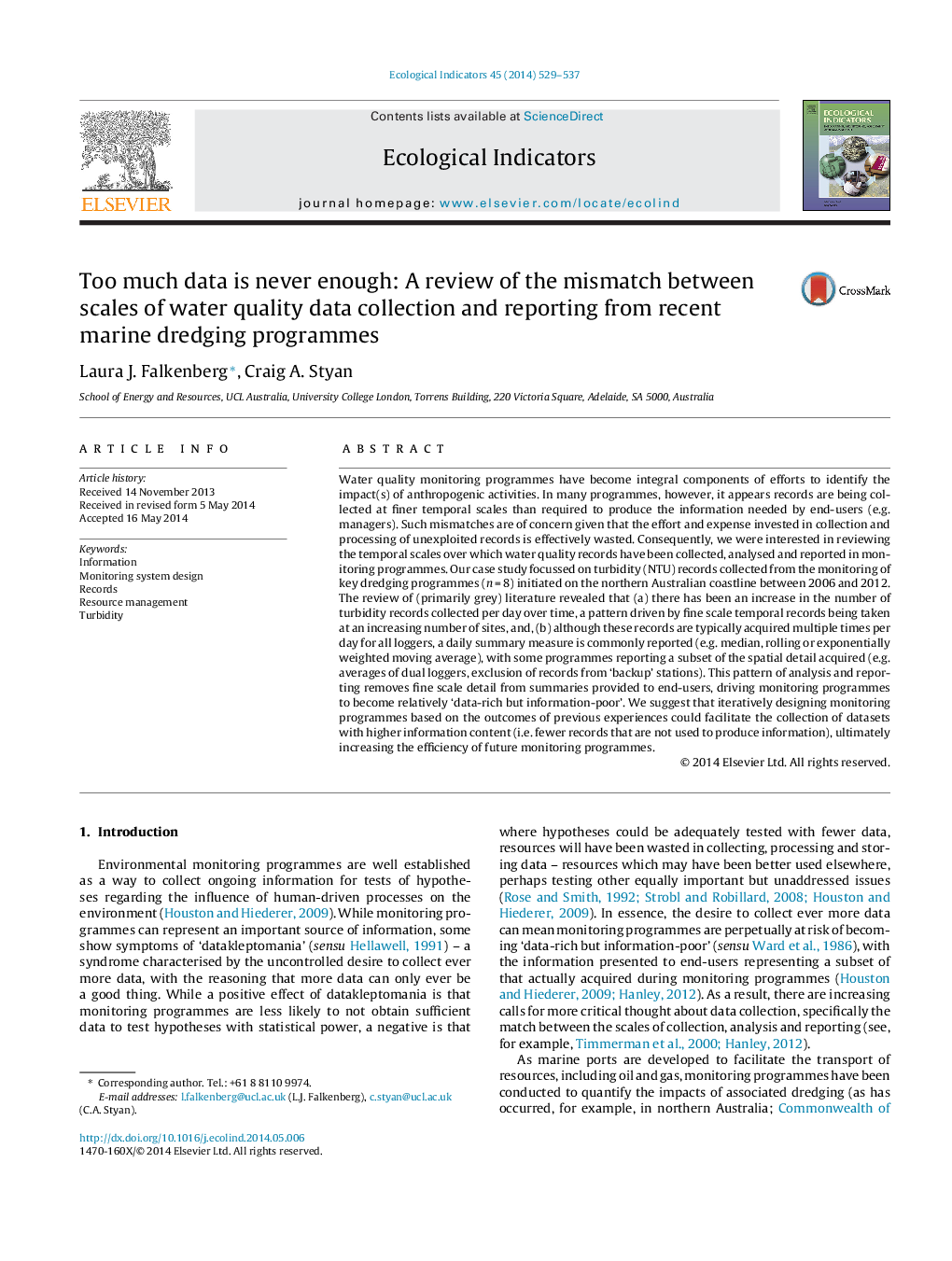| کد مقاله | کد نشریه | سال انتشار | مقاله انگلیسی | نسخه تمام متن |
|---|---|---|---|---|
| 4373094 | 1617156 | 2014 | 9 صفحه PDF | دانلود رایگان |
• We reviewed temporal scales used in turbidity monitoring of dredging programmes.
• The collection interval was consistently much finer than the reported interval.
• The mismatch suggests hypotheses not being tested or unnecessary collection effort.
• Future monitoring programmes could be iteratively designed to increase efficiency.
Water quality monitoring programmes have become integral components of efforts to identify the impact(s) of anthropogenic activities. In many programmes, however, it appears records are being collected at finer temporal scales than required to produce the information needed by end-users (e.g. managers). Such mismatches are of concern given that the effort and expense invested in collection and processing of unexploited records is effectively wasted. Consequently, we were interested in reviewing the temporal scales over which water quality records have been collected, analysed and reported in monitoring programmes. Our case study focussed on turbidity (NTU) records collected from the monitoring of key dredging programmes (n = 8) initiated on the northern Australian coastline between 2006 and 2012. The review of (primarily grey) literature revealed that (a) there has been an increase in the number of turbidity records collected per day over time, a pattern driven by fine scale temporal records being taken at an increasing number of sites, and, (b) although these records are typically acquired multiple times per day for all loggers, a daily summary measure is commonly reported (e.g. median, rolling or exponentially weighted moving average), with some programmes reporting a subset of the spatial detail acquired (e.g. averages of dual loggers, exclusion of records from ‘backup’ stations). This pattern of analysis and reporting removes fine scale detail from summaries provided to end-users, driving monitoring programmes to become relatively ‘data-rich but information-poor’. We suggest that iteratively designing monitoring programmes based on the outcomes of previous experiences could facilitate the collection of datasets with higher information content (i.e. fewer records that are not used to produce information), ultimately increasing the efficiency of future monitoring programmes.
Journal: Ecological Indicators - Volume 45, October 2014, Pages 529–537
